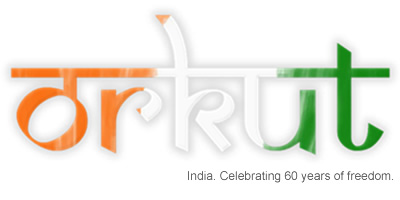Once upon a time, there was a service called Orkut


A kind of nut? An obscure race of extra terrestials in one of the forgettable, recent Star Wars movies. An Eastern European small car!
Depending on where you are in the world, these may well be your guesses to the meaning of the word that suddenly proliferated news channels a few days ago, especially in India. Orkut, as you may know, is none of the above but the name of one of the world's first online social networks of significance. The reason it made headlines is because of its decision to shut shop.
Or rather, a decision made by its parent, which happens to be one of the world's biggest internet companies. Google has decided to do a 'Kevorkian' on its child which admittedly has been on life support for many years now. The company plans to pull the plug on it on September 30th. The fact that it has its newer baby, Google Plus, with its 300 million or so members to nurture makes that decision all the more easy.
For many Indians this is sad news indeed, opening up a floodgate of nostalgia that harkens back to a time when many here first cut their teeth on social networking. Orkut, Wiki informs me was named after Google employee Orkut Büyükkökten, a Turkish software engineer and former product manager at Google who, after studying Computer Science in Ankara, acquired a MS and a PhD in the same subject from Stanford.
Orkut's biggest fans happened to be in Brazil and India. In 2008, more than four years since its inception, the social network apparently had 13 million unique visitors in India alone which was three times that of Facebook's in the country, helped in some way by the fact that Orkut was designed to work with slow connection speeds.
In fact, even today, as much as 20 percent of Orkut's active users reside in India and are simply unwilling to cleave themselves away from the service. Fifty per cent still come from Brazil which is its number one country when it comes to users. Here's a heartfelt ode to Orkut written by an Indian who found her husband on the service.
Ironically, one could argue that Orkut actually paved the way for the rise of parent Google's arch nemesis, Facebook, and therefore hastened the subsequent, rapid obliteration of itself. Apparently, the astonishingly quick adoption of Facebook in India took place around the first half of 2009 and by the first quarter of 2010, Orkut was pretty much toast. By then, as Scroll observes, a class divide had taken place between Orkutians' and 'Facebookers' in India with the latter wrinkling their noses in disdain at the former.
And what of Orkut's spiritual legacy, Google Plus? Musings on whether Google Plus has been a success or failure still causes conflagrations on the net. It certainly is no competitor to Facebook but its fans, and its brain trust, say that it never was meant to be a Facebook-like social network to begin with—instead, it was a kind of 'social glue' for all of Google’s services.
Moroever, the real reason for Google Plus is not, as industry folk have pointed out, to battle Facebook but because the company realized that its advertising model is close to hitting a ceiling, where squeezing out any more revenue growth is becoming a challenge. Instead, mining a user's various applications allows it to learn more about them and make targeted ads more effective and abundant. There's just a lot more data to play around with now.
Whatever the merits or de-merits of Google Plus may be, one thing is for sure: Many Indians and Brazilians will probably tell you that it’s no Orkut.